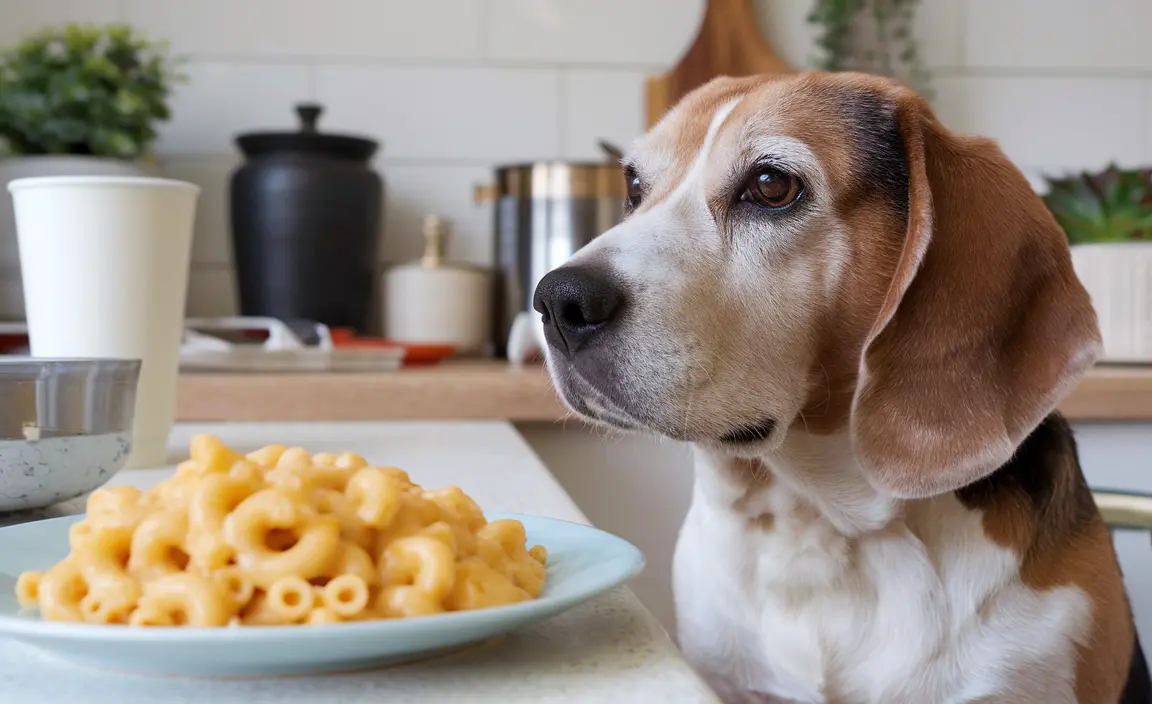As a responsible dog owner, you might wonder about sharing your favorite comfort food with your furry friend. Macaroni and cheese might seem like a harmless treat, but veterinary experts strongly advise against feeding this popular dish to dogs. Understanding the potential health risks is crucial for maintaining your pet's well-being and preventing unnecessary digestive issues.
Why Macaroni and Cheese is Problematic for Dogs
High Fat and Sodium Content
Macaroni and cheese is a nutritional minefield for dogs. The dish is typically loaded with high levels of fat and sodium, which can lead to serious health complications. These excess calories contribute to obesity, potentially trigger pancreatitis, and increase the risk of high blood pressure in canines. Small breeds and dogs with existing health conditions are particularly vulnerable to these dietary risks.
Dairy Sensitivity and Lactose Intolerance
Most dogs are lactose intolerant, meaning their digestive systems struggle to process dairy products effectively. The cheese component of mac and cheese can cause uncomfortable and potentially severe gastrointestinal reactions, including:
- Vomiting
- Diarrhea
- Excessive gas
- Abdominal discomfort
Potential Toxic Ingredients
Many mac and cheese recipes or boxed versions contain additional ingredients that are toxic to dogs. Garlic and onion, which are common flavor enhancers, can be particularly dangerous and may cause serious health issues even in small quantities. Preservatives and artificial additives found in processed versions further increase the potential health risks.
Digestive Risks and Symptoms to Watch
When a dog consumes macaroni and cheese, they may experience a range of digestive symptoms. While most reactions are mild and resolve within 24 hours, persistent issues require immediate veterinary attention. Signs of digestive distress include:
- Repeated vomiting
- Continuous diarrhea
- Lethargy
- Loss of appetite
- Abdominal pain or bloating
When to Contact Your Veterinarian
If your dog has consumed a significant amount of mac and cheese or displays severe symptoms lasting more than 48 hours, contact your veterinarian immediately. Dogs with pre-existing allergies, particularly to dairy or wheat, may experience more intense reactions and require professional medical assessment.
Nutritional Considerations
From a nutritional standpoint, macaroni and cheese offers virtually no health benefits for dogs. While plain, cooked pasta in minimal amounts isn't toxic, it provides no substantial nutritional value. Cheese, though not inherently poisonous, is high in saturated fat and salt, making it an unsuitable regular treat.
Safe Alternatives for Treating Your Dog
Instead of sharing human food, consider these safer alternatives for treating your canine companion:
- Plain, cooked pasta in very small quantities
- Dog-specific treats formulated for their nutritional needs
- Lean, cooked meats without seasoning
- Veterinarian-approved healthy snacks
Frequently Asked Questions
Can dogs safely eat macaroni and cheese or is it harmful to their health?
Dogs should not eat macaroni and cheese. The high fat, sodium, and potential toxic ingredients make it a risky food that can cause digestive issues and long-term health problems.
What digestive problems can dogs experience after eating mac and cheese?
Dogs may experience vomiting, diarrhea, gas, abdominal discomfort, and potential allergic reactions, especially if they are lactose intolerant.
Are there any toxic ingredients commonly found in mac and cheese that dog owners should avoid?
Garlic, onions, excessive salt, and artificial preservatives can be harmful to dogs and should be strictly avoided.
What should I do if my dog accidentally eats a large amount of macaroni and cheese?
Monitor your dog closely, watch for digestive symptoms, and contact your veterinarian if symptoms persist or appear severe.
Are there safer alternatives to macaroni and cheese that I can give my dog as a treat?
Choose dog-specific treats, plain cooked meats, or veterinarian-recommended snacks that are nutritionally balanced and safe for canine consumption.
Always prioritize your dog's health by consulting with a veterinarian about appropriate dietary choices and treating them with foods specifically designed for their nutritional needs.






